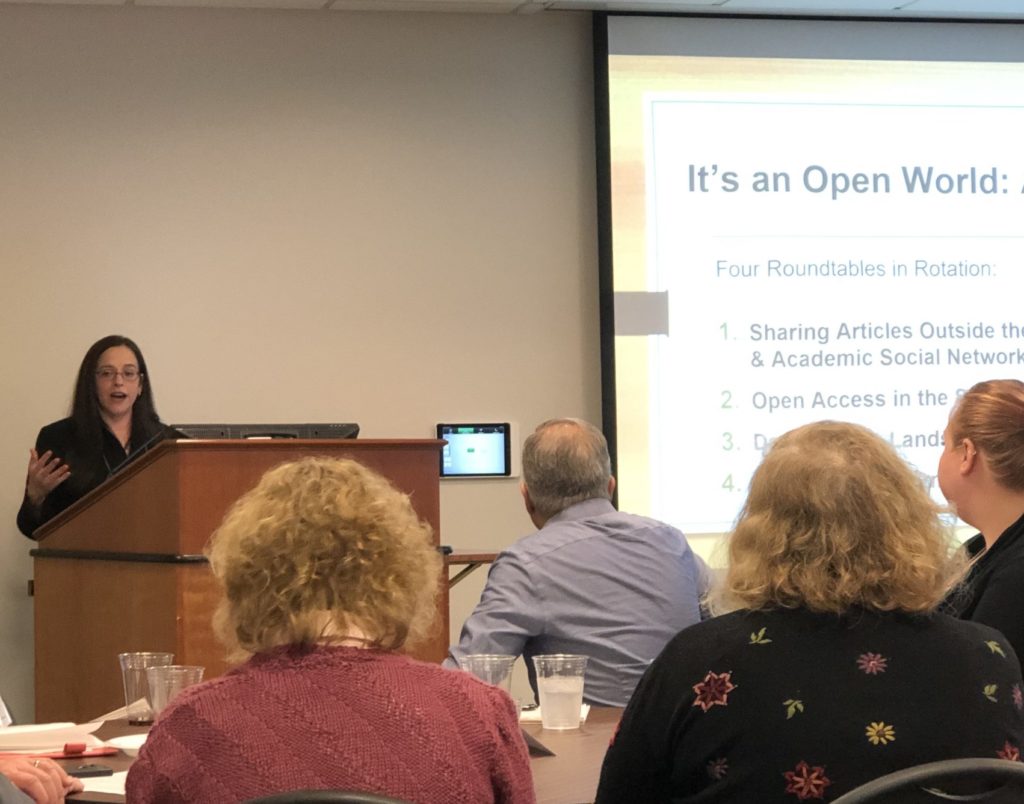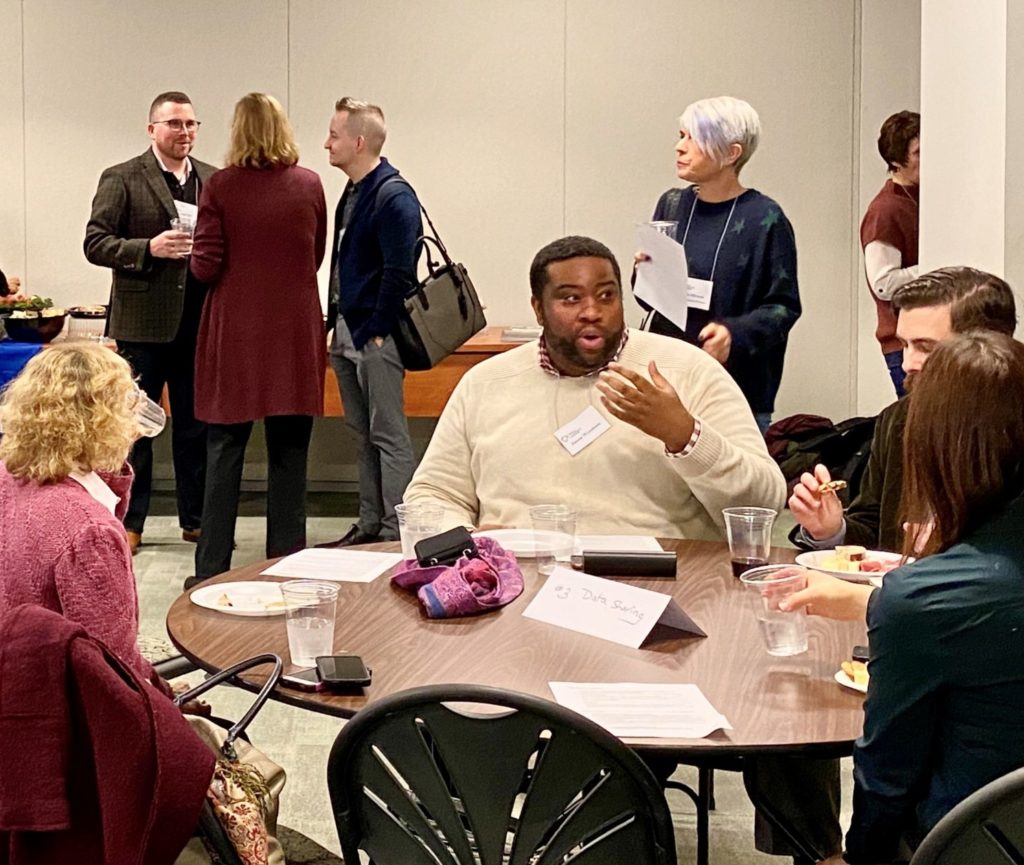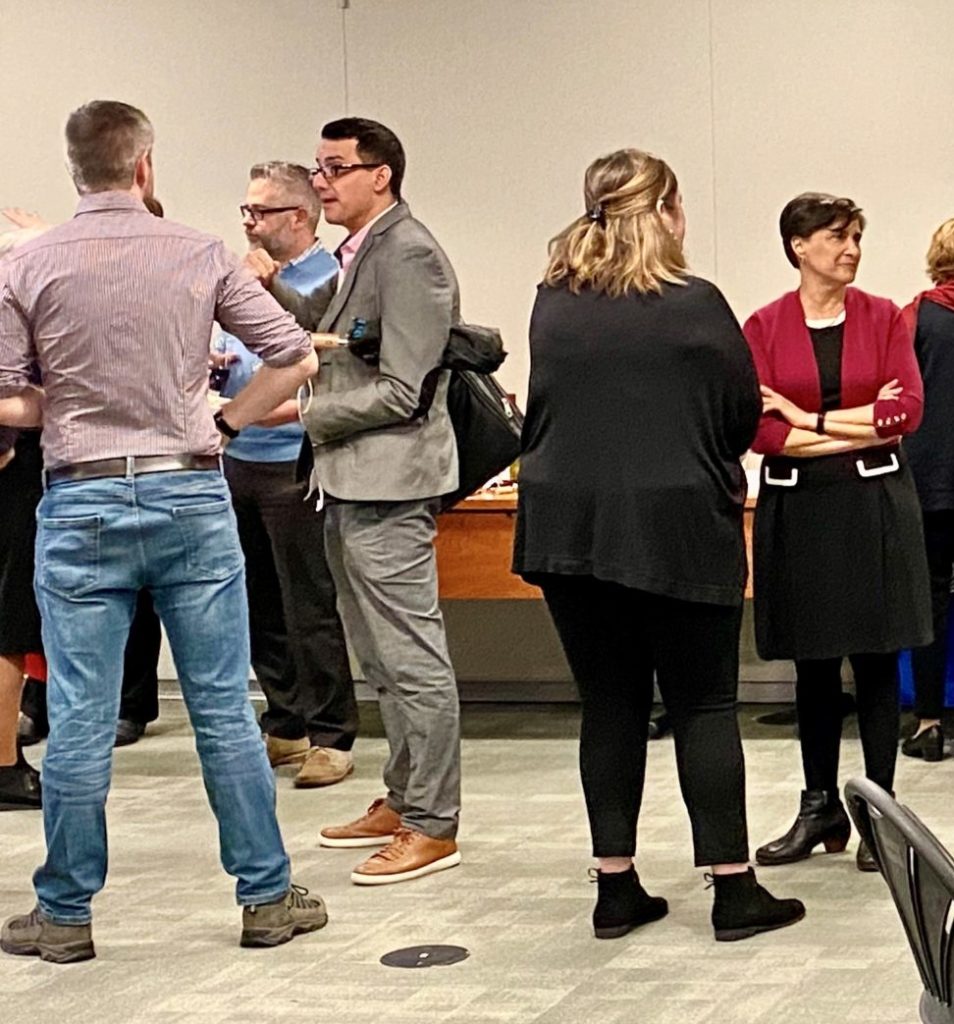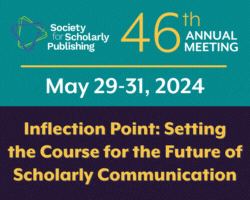
For more than 300 years, scholarly articles were locked in journals, accessible only to those with access to the print, and more recently digital, editions. Now authors, readers, journal editors, and publishers face expectations for articles and the supporting data to be open and easily accessible to all.
Open Access and its numerous business models have dominated much of the dialogue in scholarly publishing the past few years. Drawing on the experience of participants, the SSP Philly meeting engaged participants to uncover best practices and what to expect with new OA dynamics.
Philadelphia has a long history of publishing and the Philadelphia SSP regional meetings demonstrate the breadth and depth of that history.
Folks from all aspects of scholarly publishing met on a rainy night (a Monday night Eagles game no less!) at the American Association for Cancer Research office in Old City. Editors, publishers, librarians, service providers, authors, professors, consultants, and others mingled over food and drink before rotating into 30-minute group discussions across four roundtables, choosing from the following topics:
- Plan S & Transformative Agreements
- Publishers are launching new models, such as read and publish, publish and read, and subscribe to open, as well as flipping subscription titles to open access. The table discussed how options should be evaluated and how different models affect libraries, authors, and publishers.
- Data Sharing Policies & Tools
- Emerging requirements are challenging publishers to broaden the type of content they handle and develop their own best practices regarding data. The table discussed how publishers develop policies and programs around data sharing, the tools they employ, and their experiences.
- Preprint Repositories & Academic Social Networking Sites
- There is an increasing need for publishers to create explicit sharing policies laying out circumstances under which authors might self-archive scholarly work in university-directed repositories, such as what version might be made available, embargo periods, and required statements. Academic Social Networking Sites such as ResearchGate and Academia.edu have grown in popularity as a way for authors to share work with their peers. The table discussed the place of repositories in the publishing lifecycle, polices publishers should advocate, the role of ASNS in author sharing and dissemination, and potential issues they create for the publishing industry in protecting and enforcing IP.
- Open Access in the Social Sciences and Humanities
- Much of the current OA focus leans toward publishing within the natural and physical sciences, which already tend to receive greater public support and financial resources compared to the social sciences and humanities. The table discussed the particulars, future, and viability of OA in the social sciences and humanities.

Bonnie Gruber, partner & practice director at Delta Think and president of the SSP Philadelphia chapter, welcomes a full house.
About SSP Philadelphia Regional Events The Philadelphia regional events continue to grow in popularity and participation. If you are in the area, consider attending our next event. We welcome folks from all areas of the scholarly publishing community and are thrilled that folks travel from New York and Washington, DC to attend our meetings.
News contribution by SSP members, Marianne Calihanna and David Myers. Marianne is Vice President of Marketing at Data Conversion Laboratory. David is Senior Publisher at Wolters Kluwer.





Join the Conversation
You must be logged in to post a comment.